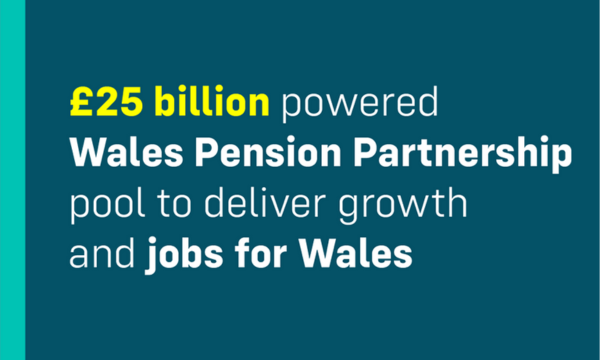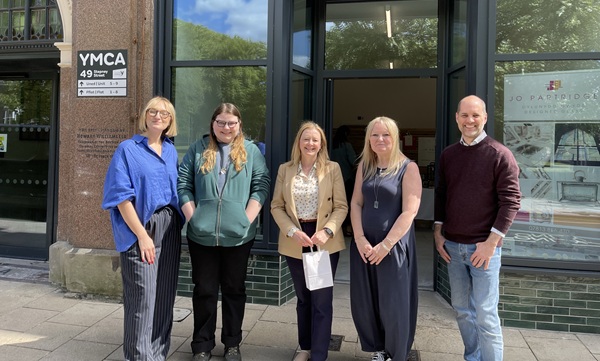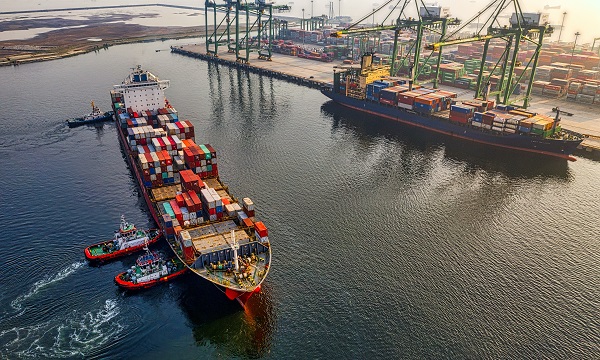
GUEST COLUMN:
Jonathon Holder
Owner
Welsh Vernacular Furniture
As the owner of Welsh Vernacular Furniture, the largest Welsh antiques specialist in the UK, I know how important high-speed internet is to the survival and growth of businesses like mine, and more broadly, to the rural economy in Wales.
We specialise in Welsh antiques, particularly everyday items that would have been found in homes 100 to 200 years ago. Ironically, given this focus on the past, our future depends heavily on 21st century technology – ultrafast broadband.
Where we’re located, in the West Wales region near Aberaeron and Newquay, things are pretty remote. Being near the sea and far from larger population centres, we can’t rely on foot traffic or people simply walking through our doors. In fact, without a strong online presence and the digital tools to connect with customers, we wouldn’t survive. That’s why having high-speed internet, capable of at least 100 Mbps, is essential, not just for us, but for all businesses and self-employed people in rural areas.
It’s easy to overlook the importance of digital infrastructure when you’re in an urban area, but for those of us in rural Wales, it’s everything. High-speed broadband allows us to compete with businesses located in more accessible, better-populated areas. It levels the playing field, allowing us to reach out to a far wider audience than we could ever hope to if we were limited to the local market. It’s how we survive in an increasingly competitive world.
For Welsh Vernacular Furniture, being online means more than just having a website. We use ultrafast broadband to live stream directly to customers. Whether it’s one-to-one consultations or small live-streamed events, this technology has allowed us to build personal connections with our customers in ways that wouldn’t be possible through emails or traditional marketing. Streaming video brings our furniture to life for people who can’t physically visit us, and it’s a far more engaging and interactive experience.
Without this kind of digital infrastructure, many businesses like ours would either fail or stagnate. High-speed internet is the lifeblood that allows rural businesses to thrive. It’s not just about growth, it’s about survival. In today’s market, if you’re not online, you’re invisible. And for remote businesses, that’s simply not an option.
Another key point is the broader impact of broadband on rural communities. Before we had decent internet connectivity in our village, the housing market was limited. The only people buying homes were those who didn’t need a reliable broadband connection. That meant fewer opportunities for business-minded people to relocate here, which in turn limited the talent pool available to local businesses. The absence of high-speed internet was not just an inconvenience; it was actively holding our community back.
That’s why, when we worked to secure ultrafast fibre for our area, we made sure that every single property, every farm, every home, and every business was included. It took longer to complete the rollout, but it was worth it.
In remote areas like ours, once a property is left out of a digital infrastructure build, it can stay excluded indefinitely. It becomes much harder, if not impossible, to bring those properties up to speed later on. Ensuring that no business or home was left out was a crucial part of our plan because the rural economy is made up of everyone. Every property could be the site of a future business or a home office for someone working remotely. Excluding anyone would be short-sighted.
This is why digital infrastructure in rural Wales has to be inclusive. It has to cover every corner, no matter how remote. Because without it, we’re not just leaving out homes and businesses; we’re leaving out potential. We’re stunting the growth of our rural economy and limiting the opportunities available to the people who live and work here.
If we want rural Wales to thrive, we must ensure that everyone, no matter how remote, has access to the digital tools they need.
















